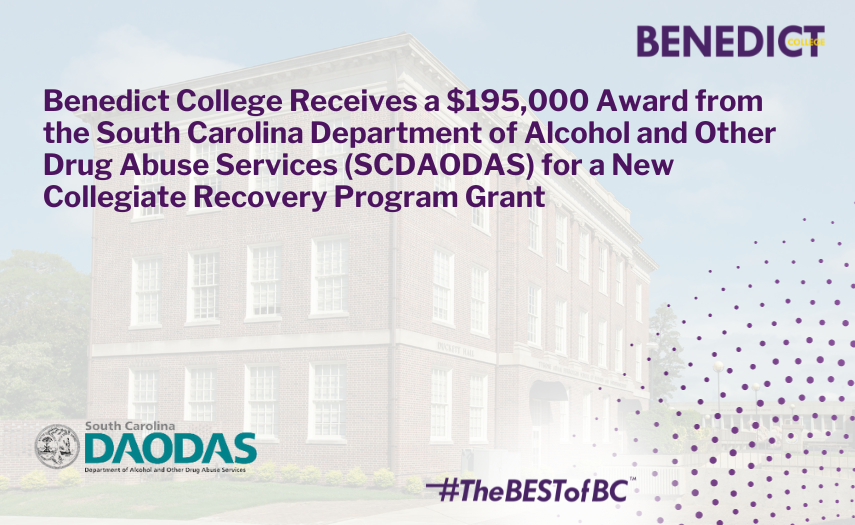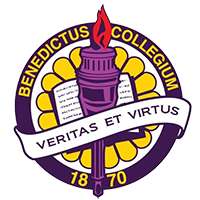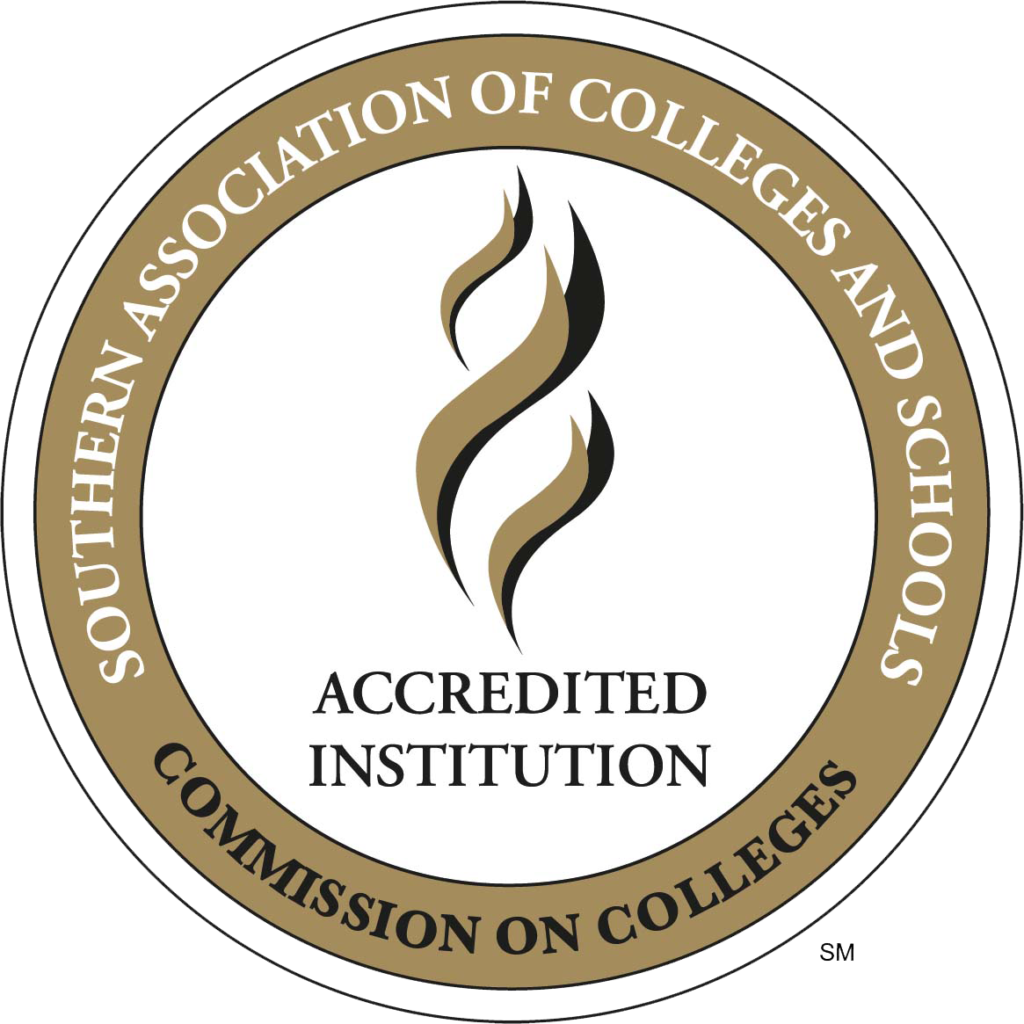Columbia, SC, January 10, 2024, Benedict College’s School of Education, Health, and Human Services Social Work Department was awarded $195,000 by the South Carolina Department of Alcohol and Other Drug Abuse Services (SCDAODAS) for a New Collegiate Recovery Program Grant.
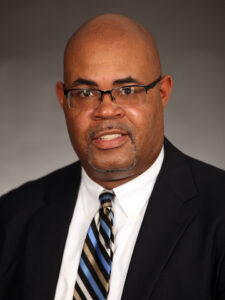
Dr. Kennard DuBose is the project’s principal investigator (PI), along with Dr. Eunika Simons, the Interim Chair of the Social Work Department and co-PI. The grant was awarded to develop, promote, and facilitate Benedict College Resist Overcome Achieve Rise, or B.C. R.O.A.R.
“The program and its acronym are in line with Benedict College’s current Strategic Plan to prioritize its students. ‘Success of Our Students: Students First’ aims to provide a student-centered learning experience, promote enrollment, institutional value proposition, retention, and visibility,” said Dr. Dubois, Assistant Social Work Professor.
“This unique program supports one of Benedict’s mantra’s ‘Four and Out the Door,’ which is indicative of a successful 4-year matriculation followed by a transition into the workforce or graduate school. B.C. R.O.A.R. will assist students in managing any personal challenges they may experience during their academic journey,” noted Dr. Roslyn Clark Artis, President and CEO of Benedict College.
The funding award provides Benedict College with resources to organize a collegiate recovery program (CRP) which will provide recovery-focused advocacy and activities. Programming will center on recovery-focused community education and outreach programs and peer-based recovery support services for Benedict’s student body.
The B.C. R.O.A.R. will offer support services such as peer mentorship, mental health counseling, first-aid training, universal screening, and referral practices to help identify potentially vulnerable students who may need support in their educational placement at Benedict College.
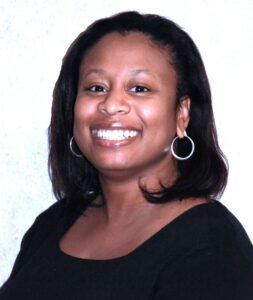
BC-ROAR will serve as a reclamation for college students as they complete their education journey. According to the National Center for Education Statistics (NCES), approximately 37% of undergraduate college students were first-generation in 2016. Hispanic and Latino/a, Black, Native Hawaiian and Pacific Islander, and American Indian and Alaska Native students are more likely than students of other races to be first-generation. The newly found freedoms and increased academic pressures of college life are just two major factors that may cause college students to have an unsuccessful experience and even resort to behaviors such as drug use and substance misuse. BC-ROAR aims to help mitigate these issues while discovering new solutions.
Photos Insert: (top left) Dr. Kennard DuBose, Assistant Social Work Professor and (lower right) Dr. Eunika Simons. Interim Chair of the Social Work Department
###
About Benedict College (www.benedict.edu)
Founded in 1870 by a woman, Bathsheba A. Benedict, Benedict College is a private co-educational liberal arts institution offering 26 competitive baccalaureate degree programs and two master’s degree programs. The Midlands HBCU welcomes students from all 46 counties in South Carolina, 30 states across America, and 26 countries around the world. The College also has a diverse faculty deeply engaged in teaching, research, and service.
Benedict College has been highly regarded and exceptionally ranked for its programs by several academic and traditional publications. Benedict College received the 2019 ACE/ Fidelity Investments Awards for Institutional Transformation and was named the HBCU of the Year by HBCU Digest. Benedict College was listed among the top half of ranked HBCUs in the 2022 edition of Best Colleges by US News and World Report.
Benedict College is accredited by the Southern Association of Colleges and Schools Commission on Colleges to award baccalaureate and master’s degrees. Five of the College’s degree programs hold national accreditation: Social Work Program, Environmental Health Science Program, Environmental Engineering, Studio Art, and the Tyrone Adam Burroughs School of Business and Entrepreneurship.

